Cozydoor recognizes the demands of your industry and is committed to providing solutions that optimize performance, durability, and cost-effectiveness. This comprehensive guide will delve deep into the world of a380 aluminum properties, empowering you to make informed decisions that elevate your projects to new heights.
Understanding the Core Properties of A380 Aluminum Alloy
A380 aluminum alloy is a highly versatile material widely used in industrial construction, particularly in die casting applications. Its unique combination of mechanical strength, castability, and cost-effectiveness makes it an ideal choice for directors and project managers overseeing large-scale construction projects, such as factories, warehouses, and shopping centers. This alloy is predominantly composed of aluminum, silicon, and copper, which contribute to its remarkable properties.
Mechanical Properties: Strength, Ductility, and Hardness
The mechanical properties of A380 aluminum are crucial for its application in demanding environments. With a tensile strength of approximately 324 MPa and a yield strength of 160 MPa, A380 exhibits excellent resistance to deformation under load. Its hardness, measured at 80 Brinell, ensures durability against wear and tear, making it suitable for components that experience high stress. Additionally, the alloy’s elongation capability of about 3.5% allows for some flexibility in design, accommodating various shapes and sizes without compromising structural integrity.
Physical Properties: Density, Melting Point, and Conductivity
A380 aluminum has a density of 2.71 g/cm³, making it lightweight yet robust—a significant advantage in construction where weight savings can lead to reduced material costs and improved efficiency. The melting point of A380 is around 566°C, which facilitates efficient casting processes. Furthermore, its thermal conductivity (96 W/m·K) and electrical conductivity (23% IACS) make it suitable for applications requiring effective heat dissipation and electrical performance.
Chemical Composition: The Building Blocks of A380
The chemical composition of A380 aluminum is integral to its performance characteristics. Key elements include:
- Silicon (7.5-9.5%): Enhances fluidity during casting and improves wear resistance.
- Copper (3-4%): Increases strength and hardness.
- Magnesium (0.1%): Contributes to overall strength without significantly increasing weight.
This composition allows A380 to meet stringent technical requirements while maintaining aesthetic appeal in finished products.
A380 vs A356: A Quick Comparison
When comparing A380 to A356 aluminum alloy, several distinctions emerge:
- Strength: A380 generally has higher tensile strength than A356.
- Castability: A380 offers superior fluidity during casting processes.
- Applications: While both alloys are used in die casting, A380 is preferred for high-stress applications due to its mechanical properties.
A380 Aluminum Alloy in Die Casting
Why Choose A380 for Die Casting?
A380 aluminum alloy is often referred to as the default choice for die casting due to its excellent combination of properties. Its ability to fill intricate molds with precision allows manufacturers to produce complex geometries efficiently. This advantage translates into reduced production times and lower costs—key factors for project managers focused on meeting deadlines without compromising quality.
The A380 Die Casting Process: A Step-by-Step Guide
- Mold Preparation: Ensure molds are clean and dry to facilitate effective casting.
- Heating the Alloy: Heat the A380 aluminum alloy until it reaches the appropriate temperature for pouring.
- Pouring: Carefully pour the molten alloy into the prepared mold.
- Cooling: Allow the cast part to cool sufficiently before demolding.
- Finishing: Perform any necessary machining or surface treatments to achieve desired specifications.
Common Challenges and Best Practices
While die casting with A380 offers numerous benefits, challenges such as hot cracking can arise. To mitigate these issues:
- Maintain optimal pouring temperatures.
- Use proper mold designs that facilitate heat dissipation.
- Implement thorough quality control measures throughout the casting process.
Read more Blog & New:
Enhancing A380 Performance with Heat Treatment
T4, T5, and T6: Understanding the Different Treatments
Heat treatment significantly enhances the mechanical properties of A380 aluminum. The three primary treatments include:
- T4 Treatment: Solution heat-treated and naturally aged; improves ductility.
- T5 Treatment: Cooled from an elevated temperature and artificially aged; increases strength.
- T6 Treatment: Solution heat-treated followed by artificial aging; maximizes hardness and strength.
Effects of Heat Treatment on Mechanical Properties
Heat treatment can improve tensile strength by up to 20%, making treated components more suitable for high-stress applications while maintaining their lightweight nature.
Selecting the Right Heat Treatment for Your Application
Choosing the appropriate heat treatment depends on specific application requirements:
- For components requiring high strength but moderate ductility, T6 may be ideal.
- For parts that need enhanced formability, T4 could be more suitable.
Exploring the Applications of A380 Aluminum
A380 in the Automotive Industry
In automotive manufacturing, A380 aluminum is utilized for engine components, transmission housings, and structural parts due to its lightweight nature and high strength-to-weight ratio. This contributes to fuel efficiency while ensuring robust performance under various operational conditions.
A380 in Appliances and Other Industries
Beyond automotive applications, A380 is also prevalent in appliances such as refrigerators and washing machines where both aesthetics and functionality are paramount. Its corrosion resistance ensures longevity in environments exposed to moisture.
The Advantages of A380 in Specific Applications
The versatility of A380 aluminum alloy provides significant advantages across various industries:
- Cost-effective manufacturing processes due to easy castability.
- Excellent surface finishing options enhance product aesthetics.
- High thermal resistivity allows use in heat-sensitive applications.
Corrosion Resistance and Durability of A380
Factors Affecting A380’s Corrosion Resistance
A380’s corrosion resistance is influenced by its chemical composition and surface treatments applied during manufacturing. Proper anodizing or coating can further enhance this property.
Performance in Various Environments
Testing shows that untreated A380 performs well in moderate environments but benefits significantly from protective coatings when exposed to harsher conditions.
Enhancing Corrosion Protection for A380
To maximize corrosion resistance:
- Apply protective coatings or anodizing treatments.
- Regularly inspect components for signs of wear or damage.
- Implement preventive maintenance strategies.
In conclusion, understanding the properties of A380 aluminum alloy is essential for directors and project managers seeking reliable materials that meet technical specifications while optimizing costs. By leveraging its unique characteristics—such as mechanical strength, castability, and corrosion resistance—construction professionals can ensure successful project outcomes.
For personalized advice on sourcing high-quality A380 aluminum materials at competitive prices or optimizing your designs for efficiency and safety, please fill out your contact information below. Cozydoor is here to assist you with expert guidance tailored to your project needs!

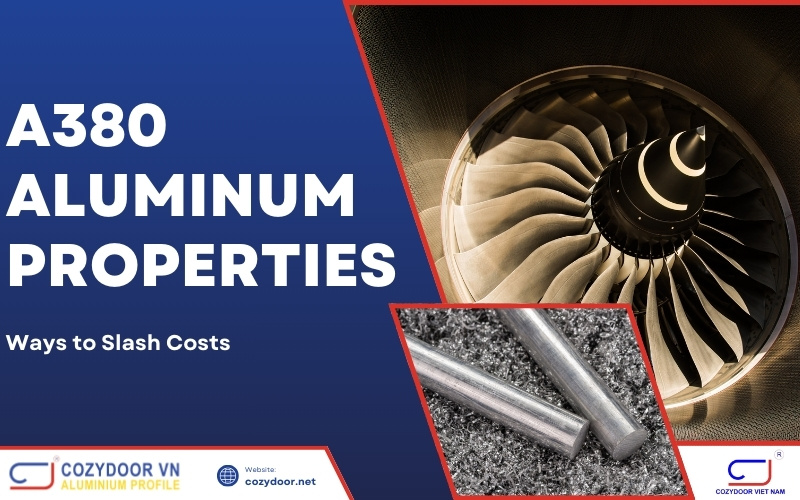
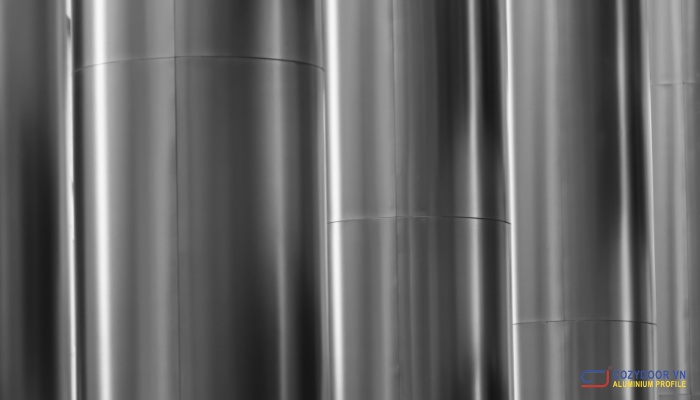
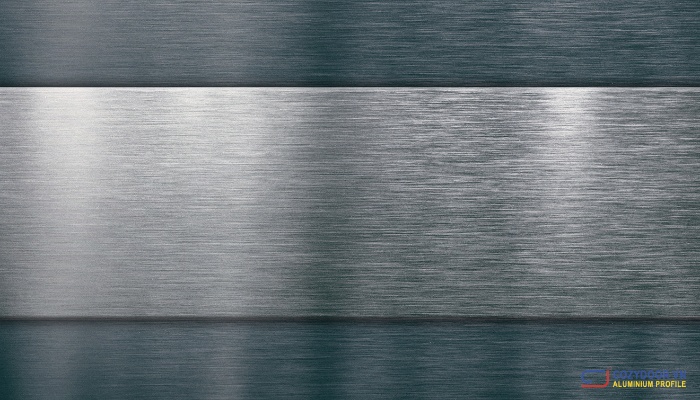
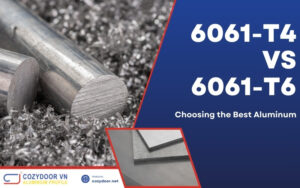
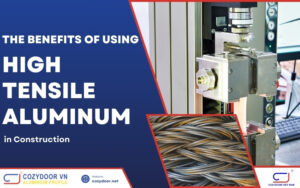
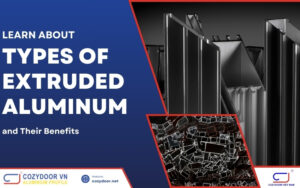
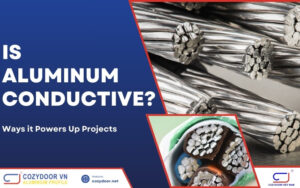
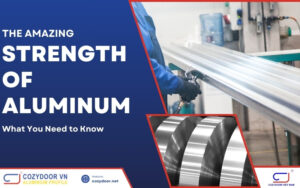
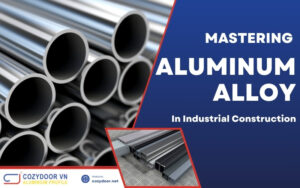
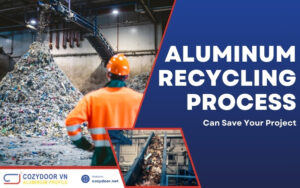
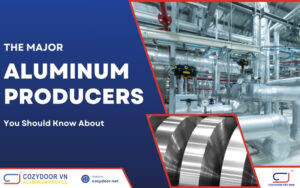

The Major Aluminum Producers You Should Know About
This comprehensive guide will equip you with the insights you [...]
Nov
Discover the Benefits of 7000 Series Aluminum Today
As a project manager in industrial construction, you’re constantly juggling [...]
Nov
Can You Recycle Aluminum? The Science Behind It Explained
In the ever-evolving landscape of construction, sustainability is no longer [...]
Nov
Unlocking the Secrets of Aluminum Ore: What is Bauxite?
Cozydoor, your trusted partner in construction materials, is here to [...]
Nov
Electrical Resistivity of Aluminum – Innovative Solutions
Are you tired of costly design overruns and unpredictable material [...]
Nov
Custom Aluminum Extrusions: Perfect Fit for Your Design Needs
Tired of the same old, cookie-cutter solutions for your industrial [...]
Nov
Aluminum Plate: The Key to Modern Construction Success
Cozydoor, a leading provider of high-quality aluminum plate materials, understands [...]
Nov
Power of Aluminium Die Casting
Are you a construction professional looking to optimize your projects [...]
Nov